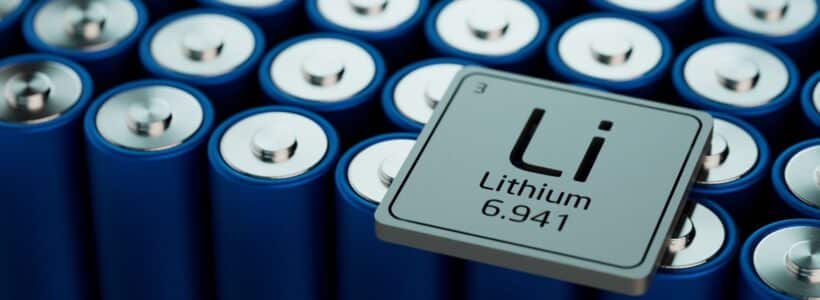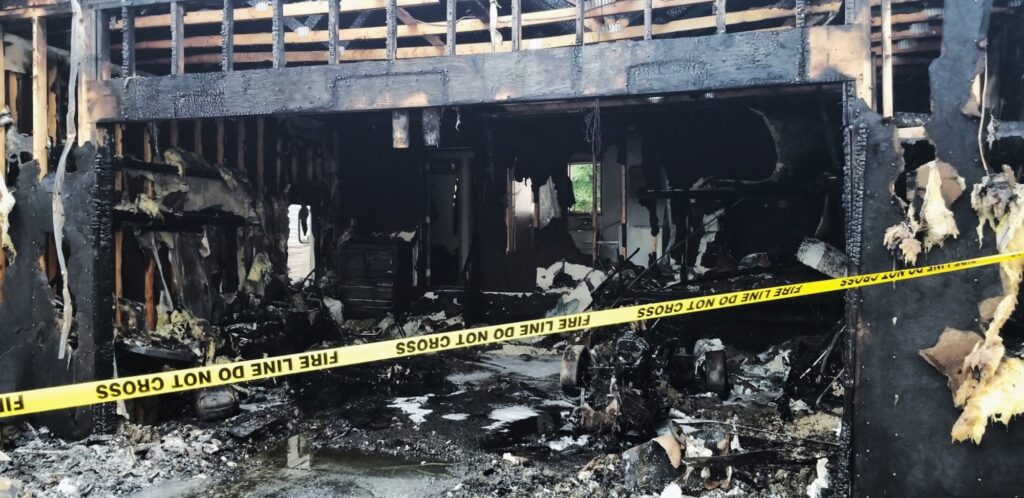
Let’s Talk Lithium | The Dangers of Lithium-Ion Batteries
Pictured below is a garage fire Kiser Construction responded to in 2021. The fire was caused by a lithium-ion battery explosion.

- Cell phones
- Laptops
- Tablets
- Smart watches
- Bluetooth headphones & ear buds
- Power tools
- Gardening tools
- E-bikes
- E-scooters
- Hoverboards
- Electric cars/trucks
- Marine/recreational vehicles
- Mobility scooters
- Medical devices
- E-cigarettes
- More
With many of these items in our homes, fires caused by lithium-ion batteries are becoming more and more common.
Battery explosions happen quickly, igniting extremely hot fires and releasing toxic fumes into the air. So, let’s talk about battery fire causes and prevention.
Lithium-Ion Battery Fire Causes
- Physical damage to the battery
- Electrical damage to the battery
- Improper charging of a battery
- Exposure of the battery to extreme temperatures
- Product defects
Lithium-Ion Battery Fire Prevention
- Only buy batteries that are certified by a nationally-recognized lab, such as UL Solutions or Intertek. Certified batteries will be labeled as such by one of these labs.
- Most battery fires are associated with batteries that haven’t been certified.
- Only use the charging equipment that was supplied with the battery’s device.
- Don’t overcharge batteries or leave them charging unattended.
- Never leave the house or go to bed with a battery on the charger.
- When determining where to store items that use lithium ion batteries, refer to the manufacturer’s instructions.
- If repairs need to be made to a battery, make sure they are done by a qualified professional.
- Stop using a battery immediately if it shows signs of damage or failure.
- This could include swelling, unusual odor, excessive heat, popping or hissing sounds, or changes in color.
- If you notice these warning signs, turn off and unplug the battery’s device. If you can safely move the device or battery away from anything flammable, do so with a pair of gloves or tongs.
- If batteries have been exposed to or submerged in water, they should be discarded.
- Don’t attempt to charge them or have them repaired.
- Place damaged batteries in a non-combustible container and keep them outside of your home until you can properly dispose of them.
Other Battery Safety Tips
- Never toss batteries or the devices they power into the trash or recycling bin.
- To find out how to properly dispose of a lithium-ion battery, contact your local fire department, your local waste department, or the product manufacturer for guidance.
- If you see smoke coming from a battery or battery-powered device/vehicle, get out immediately, close the door behind you, and call 911.
We highly recommend checking out the video below to see just how dangerous battery fires can be and go more in-depth on prevention.
Click the subscribe button below to be the first to see our new blog posts! One to two times a month, you’ll receive tips and tricks for home maintenance and disaster prevention.
